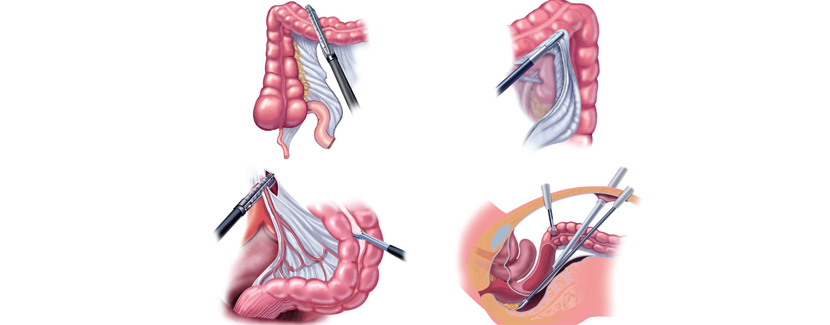Laparoscopic Colonic Surgery

Laparoscopic colonic surgery, also known as minimally invasive or keyhole surgery, is a surgical technique that involves making small incisions in the abdomen to insert a camera and specialized instruments to perform surgery on the colon. This approach is often preferred over traditional open surgery, which involves a larger incision in the abdomen, because it is associated with less pain, a shorter hospital stay, and a faster recovery time.
During laparoscopic colonic surgery, the surgeon makes several small incisions in the abdomen and inserts a laparoscope, which is a thin tube with a camera and light attached to it. This allows the surgeon to see inside the abdomen and guide the instruments to the site of the surgery. The colon is then detached from the surrounding tissue and blood vessels, and the affected part is removed. The remaining parts of the colon are then joined back together, often using staples or sutures.
Laparoscopic colonic surgery is commonly used to treat conditions such as colon cancer, diverticulitis, inflammatory bowel disease, and other conditions that affect the colon. It is usually performed under general anesthesia and may take several hours to complete, depending on the complexity of the surgery. Recovery time varies depending on the individual patient and the specific procedure performed, but most people are able to return to their normal activities within a few weeks.










